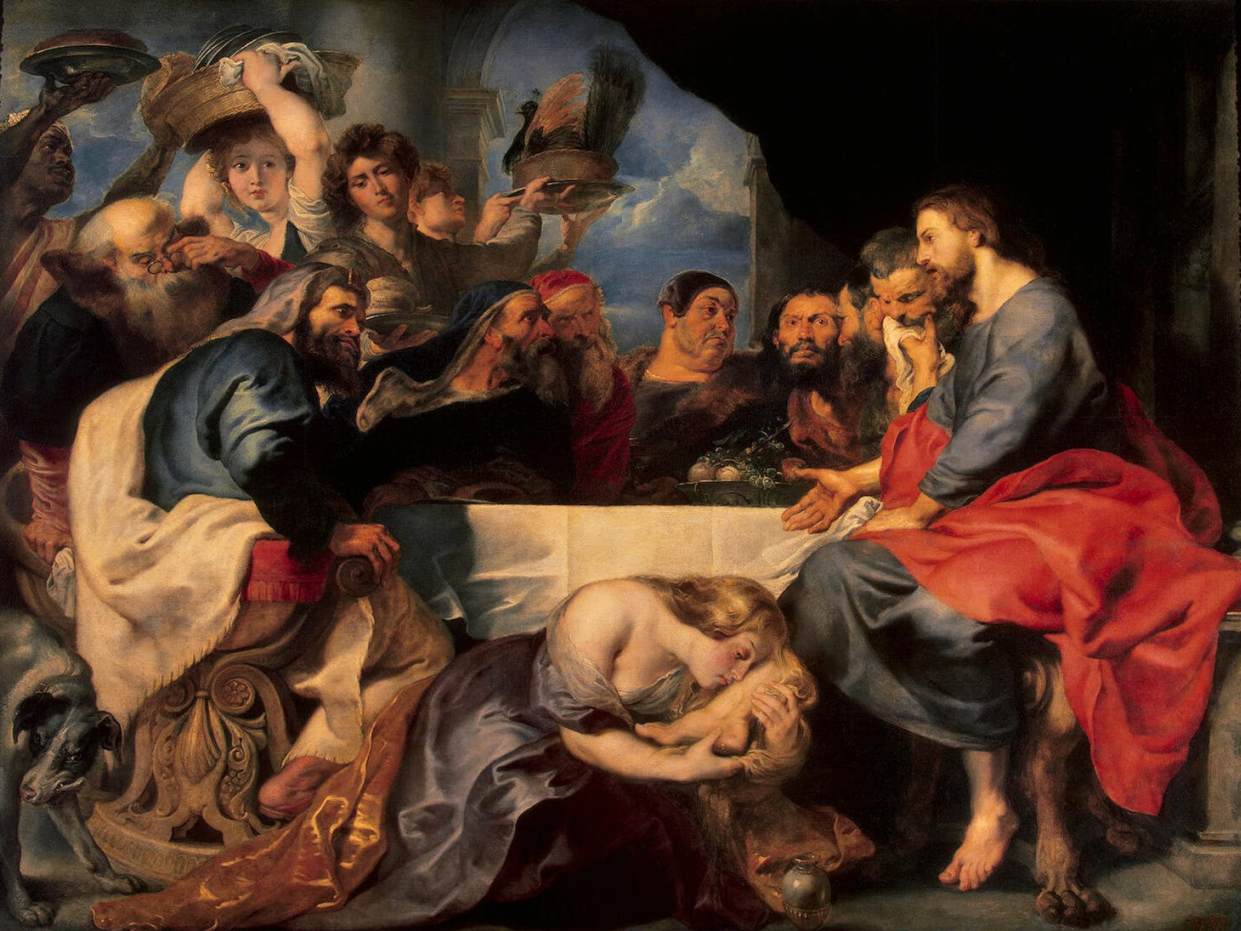Message of Abbot Paul - Thursday 16th September
Message from Fr Paul for Thursday, 16th September 2021
We tend to jump to conclusions very quickly when judging others and, at times, condemn people without knowing all the facts. This seems to be a common trait in many human beings. We also get very upset when people misjudge us. Today’s Gospel account from Luke, (Lk 7: 36-50), tells the story of an encounter between Jesus and a woman who is a sinner, which took place in the house of Simon the Pharisee. It’s a moving story that has much to teach us about the goodness of God and his willingness to forgive even the gravest of sinners, who repent of their sins.
“One of the Pharisees invited Jesus to a meal. When he arrived at the Pharisee’s house and took his place at table, a woman came in, who had a bad name in the town. She had heard he was dining with the Pharisee and had brought with her an alabaster jar of ointment. She waited behind him at his feet, weeping, and her tears fell on his feet, and she wiped them away with her hair; then she covered his feet with kisses and anointed them with the ointment.” Only in Luke do we find a Pharisee inviting Jesus to supper in his house and, as far as we can see, he was not accompanied by his disciples. In the other Gospels, they are mentioned, but not here. We are told that a woman, who was known to be a sinner in the town, came into house. How was that possible? At that time, banquets we held in the courtyards of large houses and the gates were left open for all outside to see. She approaches Jesus from behind, then begins to weep, allowing her tears to fall on his feet. She then lets down her hair in public to wipe them and proceeds to anoint his feet with precious ointment, yet Jesus appears not to react. Who does react to this is the Pharisee and he does so objecting “to himself”. We hear his thoughts as he thinks to himself. “When the Pharisee who had invited him saw this, he said to himself, ‘If this man were a prophet, he would know who this woman is that is touching him and what a bad name she has.’ Then Jesus took him up and said, ‘Simon, I have something to say to you.’ ‘Speak, Master’ was the reply. ‘There was once a creditor who had two men in his debt; one owed him five hundred denarii, the other fifty. They were unable to pay, so he pardoned them both. Which of them will love him more?’ ‘The one who was pardoned more, I suppose’ answered Simon. Jesus said, ‘You are right.’” Jesus, however, who can see into men’s hearts and minds, answers him with a short parable about two debtors. We also discover the Pharisee’s name, Simon, and note how gentle and kind Jesus is in correcting his thoughts. Simon acknowledges that Jesus is right. He’s a good man and knows that God forgives those who repent and that the person who has been forgiven much will have more gratitude in his heart.
Jesus then comments on the woman herself, “Then he turned to the woman. ‘Simon,’ he said ‘you see this woman? I came into your house, and you poured no water over my feet, but she has poured out her tears over my feet and wiped them away with her hair. You gave me no kiss, but she has been covering my feet with kisses ever since I came in. You did not anoint my head with oil, but she has anointed my feet with ointment. For this reason, I tell you that her sins, her many sins, must have been forgiven her, or she would not have shown such great love. It is the man who is forgiven little who shows little love.’ Then he said to her, ‘Your sins are forgiven.’ Those who were with him at table began to say to themselves, ‘Who is this man, that he even forgives sins?’ But he said to the woman, ‘Your faith has saved you; go in peace.’” Jesus turns to the woman, but continues speaking with Simon, contrasting her behaviour with his, listing those things that she has done but he has not. He must be shamefaced at all this. Obviously, Simon has not sinned as much or as greatly, so he cannot understand the depth of her gratitude. His words speak for themselves. Finally, Jesus speaks to the woman, whose identity Is not revealed, simply saying, “Your sins are forgiven.” Then there ensues the usual discussion among those present as to who Jesus might be, as only God can forgive sin. Who is this man that he can say such things? Jesus, however, pays no attention but concentrates on the woman. She can go in peace, for her faith has saved her. Therein lies the key to the story: she is saved by faith, by trust in a merciful and loving God. May we be granted such faith. Amen.










